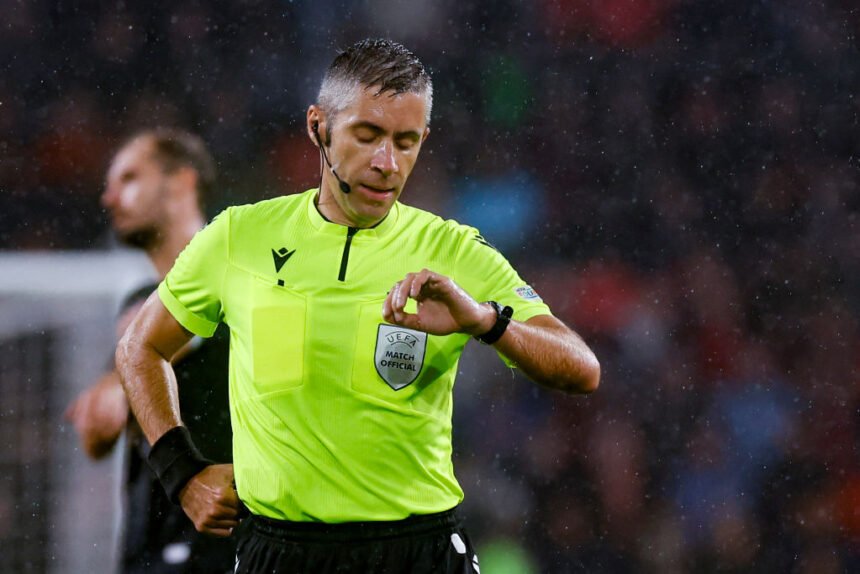UEFA does not want Champions League matches to include double-digit minutes of stoppage time, which its top football official referred to as “absolutely absurd” during the World Cup.
According to UEFA Chief of Football Zvonimir Boban, adding that many more minutes over the course of a season is harmful for the health of the players.
The former AC Milan and Croatia star midfielder Boban remarked, “Player welfare is really some kind of small tragedy,” at a UEFA briefing on refereeing difficulties the day before the Champions League group stage draw.
In the previous nine months, FIFA pressured officials at the men’s and women’s World Cups to let games continue past the required 90 minutes and into the second half. FIFA intended to account for all goal celebrations, substitutes, injuries, and possible time-wasting.
Gianni Infantino, the president of FIFA, has endorsed the rule, arguing that it gives fans more for their money despite concerns that many games only had the ball in play for 50 to 55 minutes.
The IFAB, the body responsible for establishing soccer’s regulations, also wants national competitions all over the world to adopt the FIFA policy on overtime.
On Wednesday, UEFA argued that games in its prestigious Champions League last season had an average “effective playing time” of 60 minutes, 7 seconds. According to UEFA, that was around five minutes longer than in each of the top domestic leagues in Europe.
“They are intense minutes (in the Champions League),” claimed Boban, a member of Milan’s 1994 champion squad, claiming that an additional “12, 13, 14” minutes might build up to 500 over the course of a season, or about five complete extra games.
Since 2021, Boban has served as the chief football advisor to UEFA, having previously held a similar position when serving as Infantino’s assistant at FIFA. Between his time spent working for the global and European football federations, he spent a brief period in Milan’s front office.
Tuesday’s Champions League qualifying matches saw games at Galatasaray and Panathinaikos, where officials added eight minutes for halftime interruptions.
Recruiting Referees
To address a shortage of 40,000 referees across Europe, UEFA launched a recruitment drive during its customary season-opening meetings in Monaco.
Football officials are subjected to high amounts of verbal, physical, and online abuse on a regular basis, from grassroots to professional levels.
Roberto Rosetti, the head refereeing officer for UEFA, admitted that as his 16-year-old nephew watched him officiate a match, he felt terrified for him.
According to Rosetti, an Italian referee who officiated the 2008 European Championship final between Spain and Germany, “We are definitely short of referees right now and we will be short of referees in the future.”
The 236,000 active referees in UEFA’s 55 national member federations are intended to grow through the “Be A Referee” initiative. There should be 276,000 referees, it stated.
Russian Referees
Sergey Karasev, a Russian referee, has been invited by UEFA to attend a training session at its headquarters in Nyon, Switzerland, the following week.
As for Karasev, who officiated matches at the 2018 World Cup hosted in Russia, Rosetti remarked, “I am looking forward to meeting him because in the last years I lost him.”
Since the beginning of Russia’s military invasion of Ukraine in February of last year, UEFA has not appointed Russian match officials to compete in international matches.
Rosetti would not completely rule out Karasev being selected for a game this season, despite the fact that UEFA and FIFA have barred Russian teams from participating in international games.




































